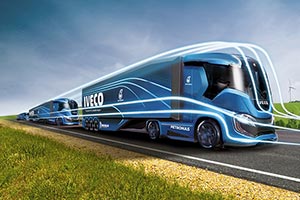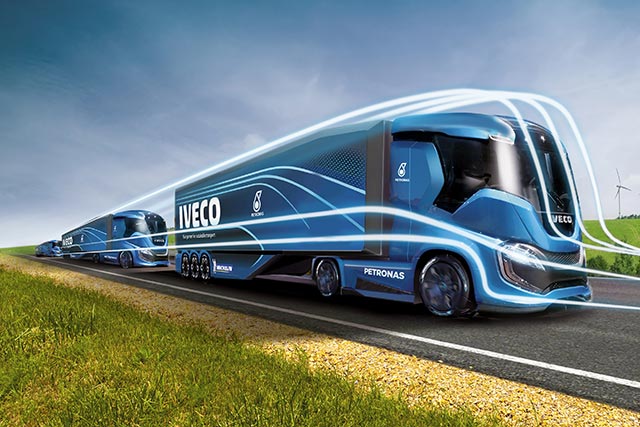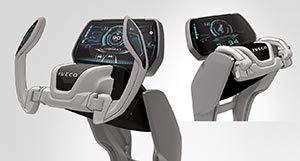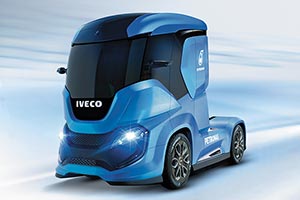Italian Truck Maker Debuts Natural Gas-Powered Concept Truck

 The Iveco Z Truck concept.
The Iveco Z Truck concept.Italian truck maker Iveco debuted its alternative fuel-powered concept truck that the company said anticipates the shift to autonomous driving and renewable energy.
The Z Truck features a liquefied natural gas-powered engine that runs on biomethane, a refined biogas often produced from landfill waste gases. The engine produces 460 horsepower and has a 16-gear automated transmission. The truck also is equipped with a waste heat recovery system, according to the company.
 The Z Truck steering system.
The Z Truck steering system.“We are facing a revolution triggered by the concern for the environment, the economy and safety on and around vehicles. With our focus on our values of sustainability, [total cost of ownership,] technology and business partnership with our customers at Iveco, we have been working to constantly reduce the impact of our vehicles with alternative fuels such as bio-LNG,” Pierre Lahutte, Iveco brand president, said in a statement.
RELATED: Natural-gas advocates claim victories in Phase 2 GHG emissions regulation
The concept truck also has two square fuel tanks capable of holding about 320 gallons equivalent between the two. The square shape makes it possible to better optimize space and have a larger carrying capacity. The tank is made of aluminum and insulated with a reflective foil to protect it from heat radiation, according to the Turin, Italy-based manufacturer.

The cab of the Z Truck is designed for autonomous driving and can be reconfigured depending on how it’s being used. The interior can be adjusted for “driving in an urban context, highway or autonomous driving on motorways, taking care of office work, relaxing or sleeping overnight,” Iveco said in a statement.
RELATED: Execs make case for natural-gas trucks
“With Iveco Z Truck and its 29 patents, we are defining where our efforts could lead us in the future: a vehicle with a human dimension, designed to accommodate comfortably and safely the work and leisure activities of the driver, adapting each time to his needs. We are defining a future of longhaul freight transport that is totally sustainable — a vehicle that has zero impact on its environment, with zero emissions and zero accidents,” Lahutte said.




